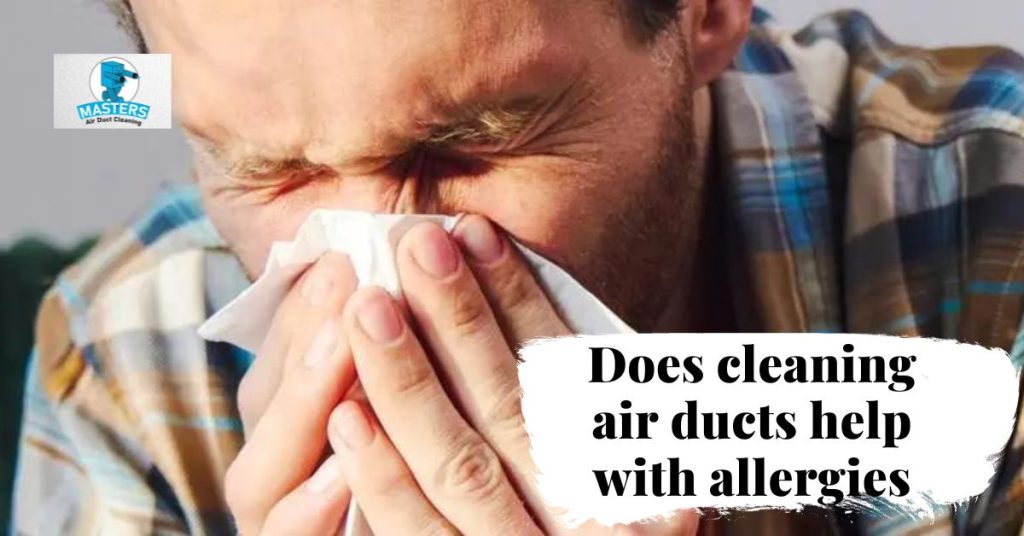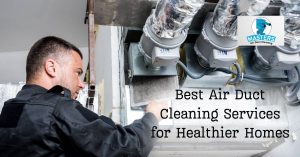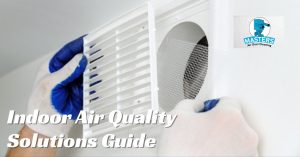When allergy season strikes, many individuals seek ways to relieve their symptoms and enhance indoor air quality. A common query that arises is does cleaning air ducts helps with allergies. Air ducts play a pivotal role in circulating air throughout our homes, and they can potentially become a breeding ground for dust, pollen, pet dander, and other allergens. In this article, we’ll explore the connection between air duct cleaning and allergies, enabling you to make informed choices about improving indoor air quality.
Understanding Allergens in Air Ducts:
Before we examine the effectiveness of air duct cleaning, it’s essential to grasp how allergens can infiltrate your air ducts. Allergens are substances that trigger allergic reactions in sensitive individuals. These include dust mites, pollen, pet dander, mold spores, and insect droppings. These allergens can enter your home through open windows and doors and hitch a ride on your clothing and shoes. Once inside, they settle within your air ducts, ready to be distributed throughout your living spaces.
The Potential Benefits of Air Duct Cleaning:
Air duct cleaning involves thoroughly removing accumulated dust, debris, and allergens from your HVAC system, encompassing the ductwork, vents, and registers. Although experts continue to debate the direct impact of air duct cleaning on allergies, there are potential benefits to consider:
Reduced Allergen Accumulation: Regular air duct cleaning can help diminish the buildup of allergens in your HVAC system, potentially lowering the overall allergen load in your home.
Improved Indoor Air Quality: By eliminating dust, debris, and allergens from your air ducts, you can enhance the quality of the air you breathe indoors, especially beneficial for allergy sufferers or those with respiratory conditions.
Enhanced HVAC Efficiency: Clean air ducts enable your HVAC system to operate at peak efficiency. It can maintain optimal airflow free from excess debris, improving performance and potentially reducing energy bills.
Important Considerations and Limitations:
While air duct cleaning presents potential benefits, several factors and limitations should be taken into account:
Identifying Allergen Sources: Air ducts may house allergens, but it’s crucial to identify and address allergen sources throughout your home. Regular cleaning practices like dusting, vacuuming, and maintaining clean bedding are pivotal in reducing allergens on other surfaces.
Professional vs. DIY Cleaning: Professional air duct cleaning is recommended for a comprehensive and effective cleaning process. DIY methods may not achieve the same level of cleanliness and could potentially harm your HVAC system.
Implement Preventive Measures: Air duct cleaning should be accompanied by other preventive measures, including regular HVAC maintenance, proper ventilation, and high-quality air filters. These steps ensure long-term improvements in indoor air quality.
Conclusion:
While the direct impact of air duct cleaning on allergies remains a subject of discussion, it can contribute to enhanced indoor air quality and decreased allergen buildup within your HVAC system. Removing dust, debris, and allergens from your air ducts fosters a cleaner environment for you and your family.
However, it’s essential to address allergen sources, adopt preventive measures, and maintain regular cleaning practices throughout your home to alleviate allergy symptoms effectively. Consider consulting with an HVAC cleaning professional like Master Air Duct Cleaning for tailored guidance specific to your situation.


